Land Rover Range Rover Sport vs Dacia Bigster - Differences and prices compared
Costs and Efficiency:
Price and efficiency are key factors when choosing a car – and this is often where the real differences emerge.
Dacia Bigster has a decisively advantage in terms of price – it starts at 20600 £, while the Land Rover Range Rover Sport costs 78600 £. That’s a price difference of around 58038 £.
Fuel consumption also shows a difference: Land Rover Range Rover Sport manages with 2.70 L and is therefore convincingly more efficient than the Dacia Bigster with 4.70 L. The difference is about 2 L per 100 km.
Engine and Performance:
Under the bonnet, it becomes clear which model is tuned for sportiness and which one takes the lead when you hit the accelerator.
When it comes to engine power, the Land Rover Range Rover Sport has a decisively edge – offering 635 HP compared to 155 HP. That’s roughly 480 HP more horsepower.
In acceleration from 0 to 100 km/h, the Land Rover Range Rover Sport is decisively quicker – completing the sprint in 3.80 s, while the Dacia Bigster takes 9.70 s. That’s about 5.90 s faster.
In terms of top speed, the Land Rover Range Rover Sport performs distinct better – reaching 290 km/h, while the Dacia Bigster tops out at 180 km/h. The difference is around 110 km/h.
There’s also a difference in torque: Land Rover Range Rover Sport pulls convincingly stronger with 800 Nm compared to 230 Nm. That’s about 570 Nm difference.
Space and Everyday Use:
Beyond pure performance, interior space and usability matter most in daily life. This is where you see which car is more practical and versatile.
Seats: offers more seating capacity – vs .
In curb weight, Dacia Bigster is decisively lighter – 1425 kg compared to 2390 kg. The difference is around 965 kg.
In terms of boot space, the Dacia Bigster offers slight more room – 667 L compared to 647 L. That’s a difference of about 20 L.
In maximum load capacity, the Dacia Bigster performs noticeable better – up to 1937 L, which is about 446 L more than the Land Rover Range Rover Sport.
When it comes to payload, Land Rover Range Rover Sport clearly takes the win – 830 kg compared to 467 kg. That’s a difference of about 363 kg.
Who comes out on top?
Overall, the Land Rover Range Rover Sport shows itself to be leaves the rival little chance and secures the title of DriveDuel Champion.
It convinces with the more balanced overall package and proves to be the more versatile choice for everyday use.
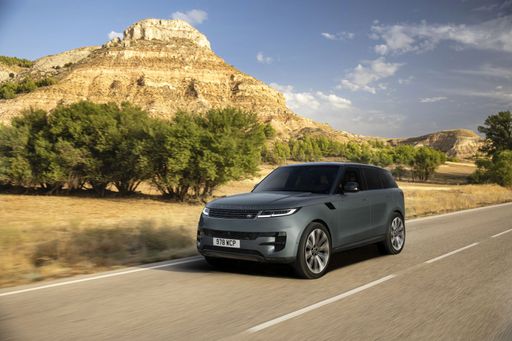 @ Jaguar Land Rover Media
@ Jaguar Land Rover Media
Land Rover Range Rover Sport
Costs and Consumption
View detailed analysis
Engine and Performance
View detailed analysis
Dimensions and Body
View detailed analysis
Land Rover Range Rover Sport
The Range Rover Sport pairs unapologetic presence with genuine capability, looking like it belongs on a red carpet while quietly promising to tackle rough tracks when called upon. Inside, the cabin pampers with plush materials and thoughtful tech, making it an irresistible choice for buyers who want luxury, confidence and a touch of adventure.
details @ Jaguar Land Rover Media
@ Jaguar Land Rover Media
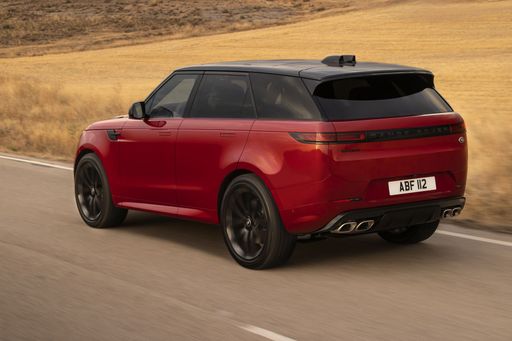 @ Jaguar Land Rover Media
@ Jaguar Land Rover Media
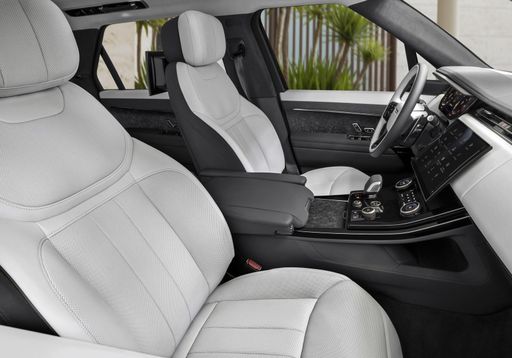 @ Jaguar Land Rover Media
@ Jaguar Land Rover Media
Dacia Bigster
The Bigster is poised to redefine the SUV segment with its bold design and spacious interior, catering to the needs of both families and adventure seekers alike. Emphasizing sustainability and practicality, this model reflects a modern approach to automotive engineering, making it a compelling choice for environmentally conscious drivers. With its striking presence on the road, the Bigster not only captures attention but also embodies a new era of versatile mobility.
details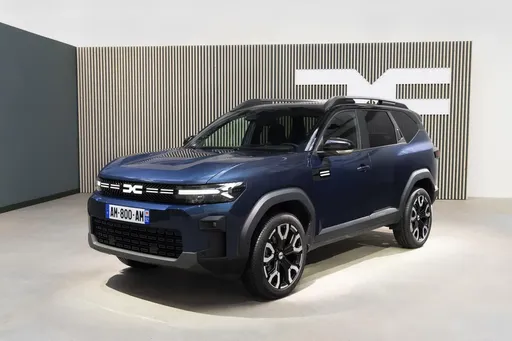 @ Dacia / Renault Group Media
@ Dacia / Renault Group Media
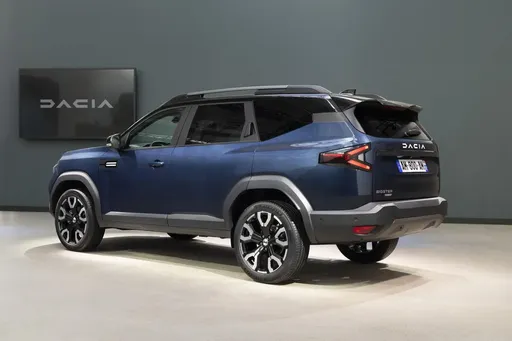 @ Dacia / Renault Group Media
@ Dacia / Renault Group Media
 @ Dacia / Renault Group Media
@ Dacia / Renault Group Media
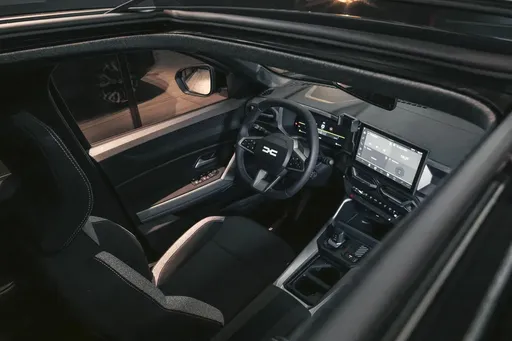 @ Dacia / Renault Group Media
@ Dacia / Renault Group Media
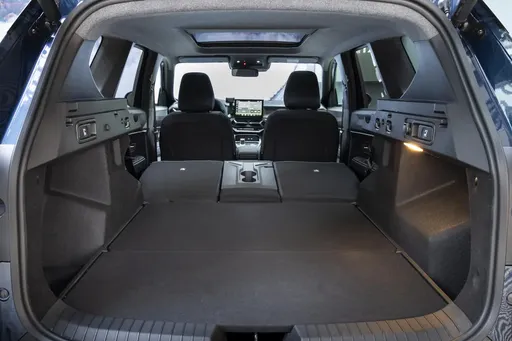 @ Dacia / Renault Group Media
@ Dacia / Renault Group Media
 @ Jaguar Land Rover Media
@ Jaguar Land Rover Media
|
 @ Dacia / Renault Group Media
@ Dacia / Renault Group Media
|
|
|
|
Costs and Consumption |
|
|---|---|
|
Price
78600 - 175700 £
|
Price
20600 - 26600 £
|
|
Consumption L/100km
2.7 - 11.7 L
|
Consumption L/100km
4.7 - 7.1 L
|
|
Consumption kWh/100km
-
|
Consumption kWh/100km
-
|
|
Electric Range
116 - 118 km
|
Electric Range
-
|
|
Battery Capacity
31.80 kWh
|
Battery Capacity
-
|
|
co2
61 - 266 g/km
|
co2
106 - 137 g/km
|
|
Fuel tank capacity
71 - 90 L
|
Fuel tank capacity
50 - 55 L
|
Dimensions and Body |
|
|---|---|
|
Body Type
SUV
|
Body Type
SUV
|
|
Seats
5
|
Seats
5
|
|
Doors
5
|
Doors
5
|
|
Curb weight
2390 - 2810 kg
|
Curb weight
1425 - 1547 kg
|
|
Trunk capacity
647 L
|
Trunk capacity
510 - 667 L
|
|
Length
4946 - 4970 mm
|
Length
4570 mm
|
|
Width
2043 mm
|
Width
1813 mm
|
|
Height
1814 - 1820 mm
|
Height
1705 mm
|
|
Max trunk capacity
1491 L
|
Max trunk capacity
1813 - 1937 L
|
|
Payload
640 - 830 kg
|
Payload
383 - 467 kg
|
Engine and Performance |
|
|---|---|
|
Engine Type
Plugin Hybrid, Petrol MHEV, Diesel MHEV
|
Engine Type
Petrol MHEV, Full Hybrid, LPG
|
|
Transmission
Automatic
|
Transmission
Manuel, Automatic
|
|
Transmission Detail
Automatic Gearbox
|
Transmission Detail
Manual Gearbox, Automated Manual
|
|
Drive Type
All-Wheel Drive
|
Drive Type
All-Wheel Drive, Front-Wheel Drive
|
|
Power HP
249 - 635 HP
|
Power HP
130 - 155 HP
|
|
Acceleration 0-100km/h
3.8 - 7.7 s
|
Acceleration 0-100km/h
9.7 - 11.2 s
|
|
Max Speed
206 - 290 km/h
|
Max Speed
180 km/h
|
|
Torque
570 - 800 Nm
|
Torque
230 Nm
|
|
Number of Cylinders
6 - 8
|
Number of Cylinders
3 - 4
|
|
Power kW
183 - 467 kW
|
Power kW
96 - 115 kW
|
|
Engine capacity
2997 - 4395 cm3
|
Engine capacity
1199 - 1799 cm3
|
General |
|
|---|---|
|
Model Year
2025
|
Model Year
2025
|
|
CO2 Efficiency Class
B, G
|
CO2 Efficiency Class
E, D, C
|
|
Brand
Land Rover
|
Brand
Dacia
|
Is the Land Rover Range Rover Sport offered with different drivetrains?
The Land Rover Range Rover Sport is offered with All-Wheel Drive.
The prices and data displayed are estimates based on German list prices and may vary by country. This information is not legally binding.
